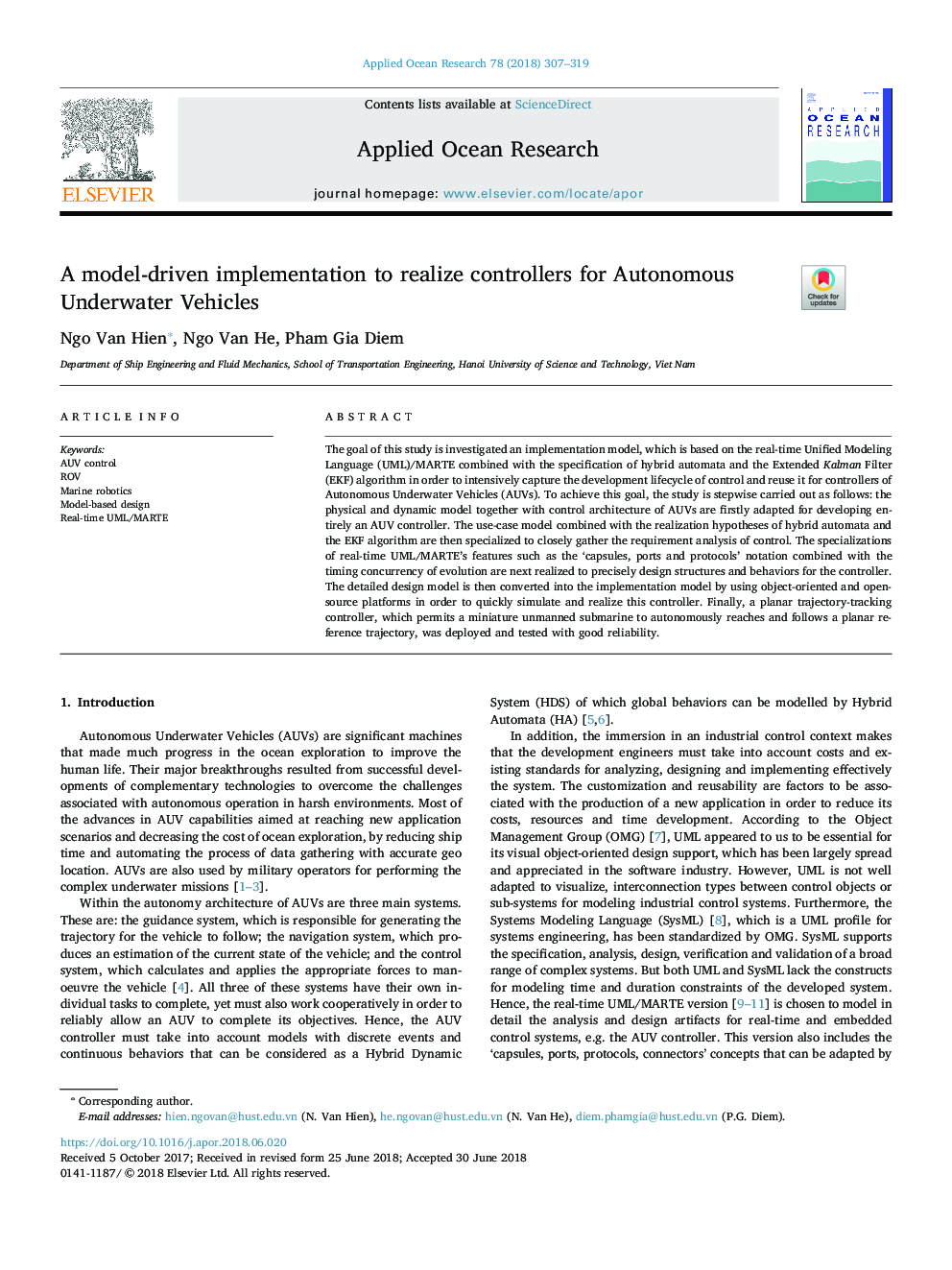| Article ID | Journal | Published Year | Pages | File Type |
|---|---|---|---|---|
| 8059223 | Applied Ocean Research | 2018 | 13 Pages |
Abstract
The goal of this study is investigated an implementation model, which is based on the real-time Unified Modeling Language (UML)/MARTE combined with the specification of hybrid automata and the Extended Kalman Filter (EKF) algorithm in order to intensively capture the development lifecycle of control and reuse it for controllers of Autonomous Underwater Vehicles (AUVs). To achieve this goal, the study is stepwise carried out as follows: the physical and dynamic model together with control architecture of AUVs are firstly adapted for developing entirely an AUV controller. The use-case model combined with the realization hypotheses of hybrid automata and the EKF algorithm are then specialized to closely gather the requirement analysis of control. The specializations of real-time UML/MARTE's features such as the 'capsules, ports and protocols' notation combined with the timing concurrency of evolution are next realized to precisely design structures and behaviors for the controller. The detailed design model is then converted into the implementation model by using object-oriented and open-source platforms in order to quickly simulate and realize this controller. Finally, a planar trajectory-tracking controller, which permits a miniature unmanned submarine to autonomously reaches and follows a planar reference trajectory, was deployed and tested with good reliability.
Related Topics
Physical Sciences and Engineering
Engineering
Ocean Engineering
Authors
Ngo Van Hien, Ngo Van He, Pham Gia Diem,
